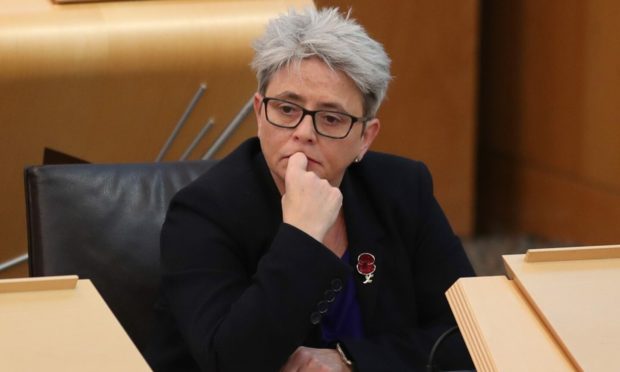A public inquiry into the pandemic response must examine whether scrutiny of care homes was allowed to “take a back seat”, according to the Scottish Conservatives.
Tory health spokeswoman Annie Wells spoke out after we revealed that more than 2,000 complaints to the Care Inspectorate were not investigated last year.
Just 122 completed investigations were carried out by the regulator into complaints raised about facilities for older people, about 5% of the total, and down from more than 600 in previous years.
The finding has emerged as part of work on a media collaboration project involving The Press and Journal, The Courier, The Scotsman, The Herald and STV News.
The Care Inspectorate said the way it worked had to be “rapidly adapted” last year, including limiting on-site investigations in order to avoid spreading the virus.
Kevin Stewart, the Scottish Government minister for mental wellbeing and social care, also said that complaint investigations had “continued throughout the pandemic as part of a multi-agency approach which also involves Health and Social Care Partnerships and local public health teams”.
However, Ms Wells said the needs of care home residents and their families had been “completely forgotten” during the crisis.
“That led to the scandal of untested patients being sent to homes straight from hospital, with tragic consequences,” she said.
“And when they most needed advocates, scrutiny has taken a back seat.
“There is only so much that can be done remotely and an online meeting is no substitute for in-depth inspections.
The long-awaited public inquiry into the SNP government’s handling of Covid will contain volumes on what went wrong in care homes. Families are waiting for answers.”
“The long-awaited public inquiry into the SNP government’s handling of Covid will contain volumes on what went wrong in care homes.
“Families are waiting for answers.”
During our research, it emerged that, amid efforts to cut the number of visits to facilities during the pandemic, a new triage system for complaints was introduced by the Care Inspectorate involving “more dialogue and mediation” at earlier stages.
In the process, the number of completed investigations fell dramatically from an average of 52 per month in 2019/20 to 10 per month last year.
Instead of investigations, more than half of complaints last year were noted for “intelligence” purposes and future inspection work, almost double the rate in the previous year.
The number dealt with by “direct service action” – where the regulator contacts the provider and asks it to engage with the complainer – also doubled, going from an average of 13 per month to 27.
In a report to its board meeting in June, the Care Inspectorate said it was “keen to learn the lessons from our work on complaints in the last year” and had “commissioned an internal review of our complaints function”.
A spokesman for the regulator has said: “In March 2020, in line with guidance from Directors of Public Health and after consultation with the Scottish Government, we rapidly adapted the way we worked because it was critical to minimise the spread of the virus, to keep people safe.
“Part of this meant on-site complaint investigations had to be limited to those that were deemed essential following an enhanced risk assessment.
“At that time we also significantly increased our contact with services and made use of technology where appropriate.”
